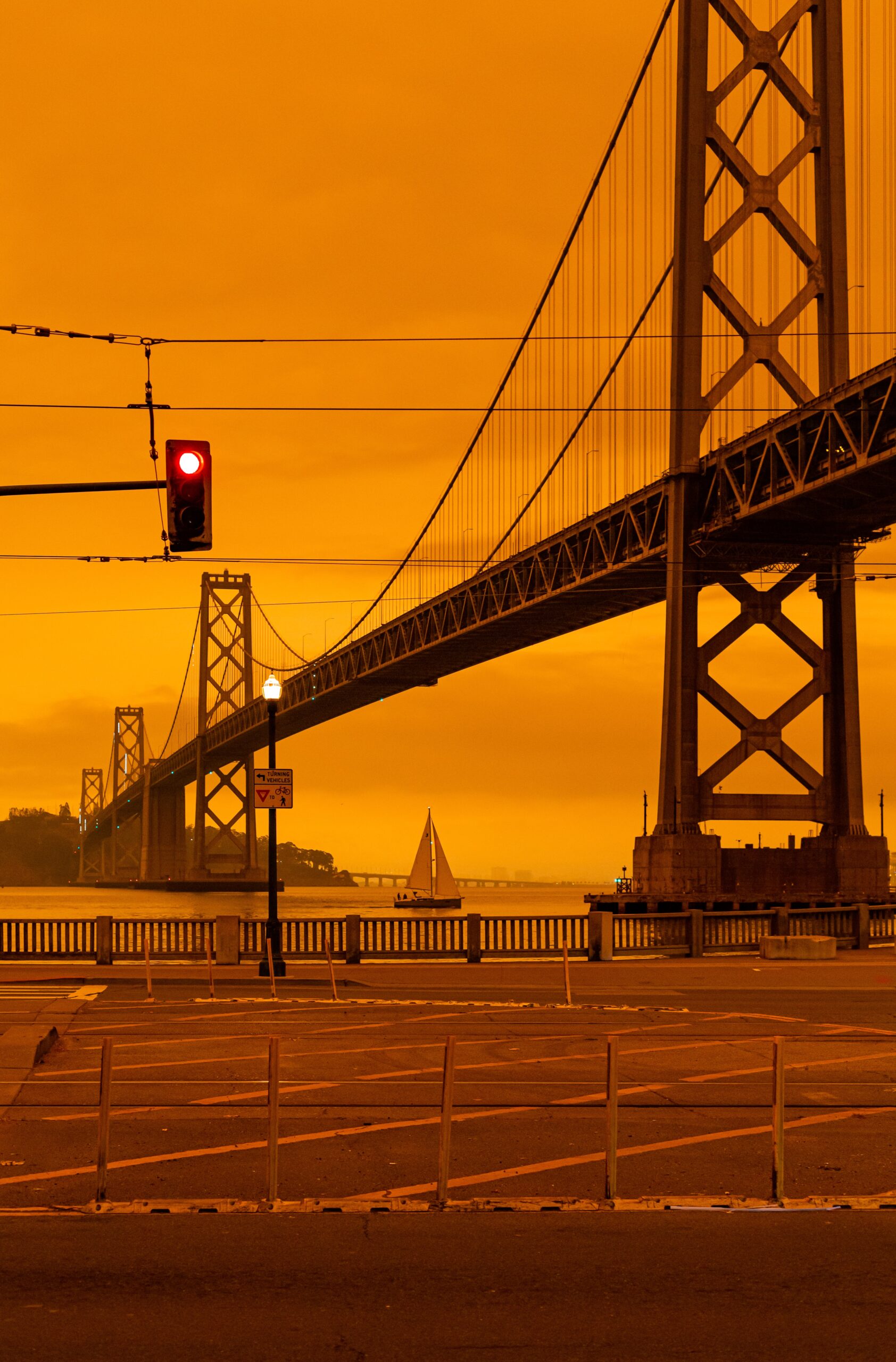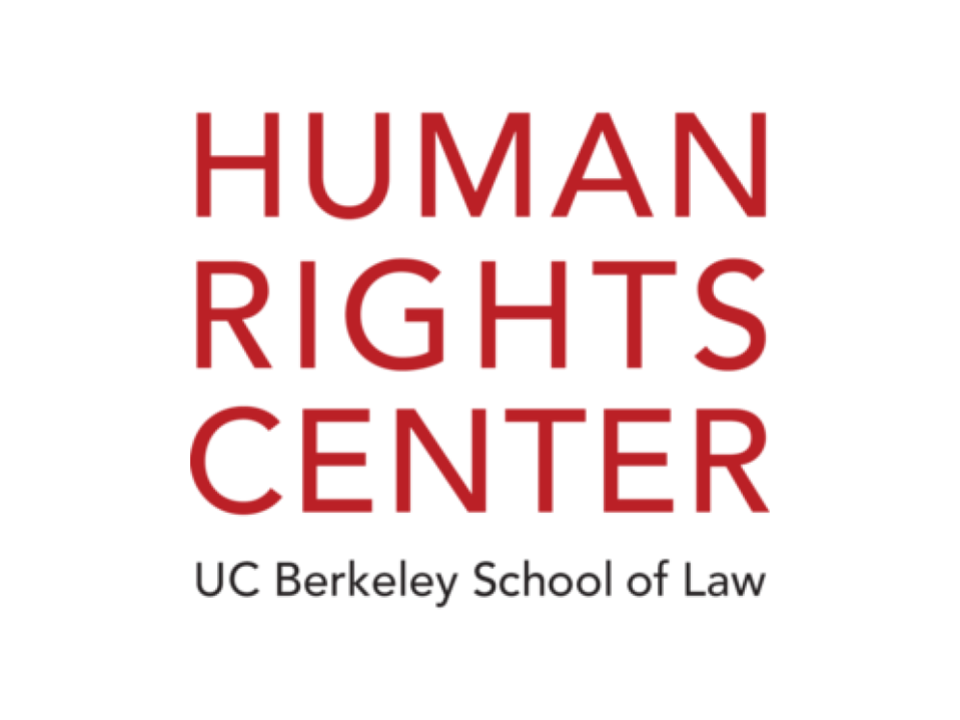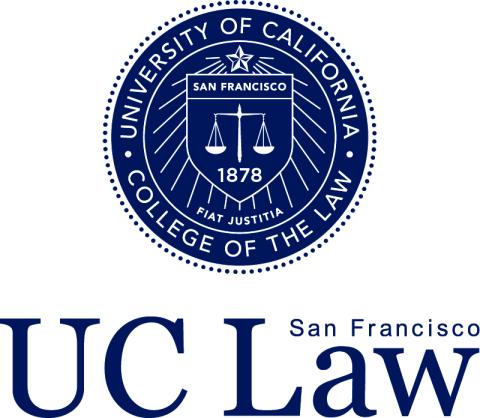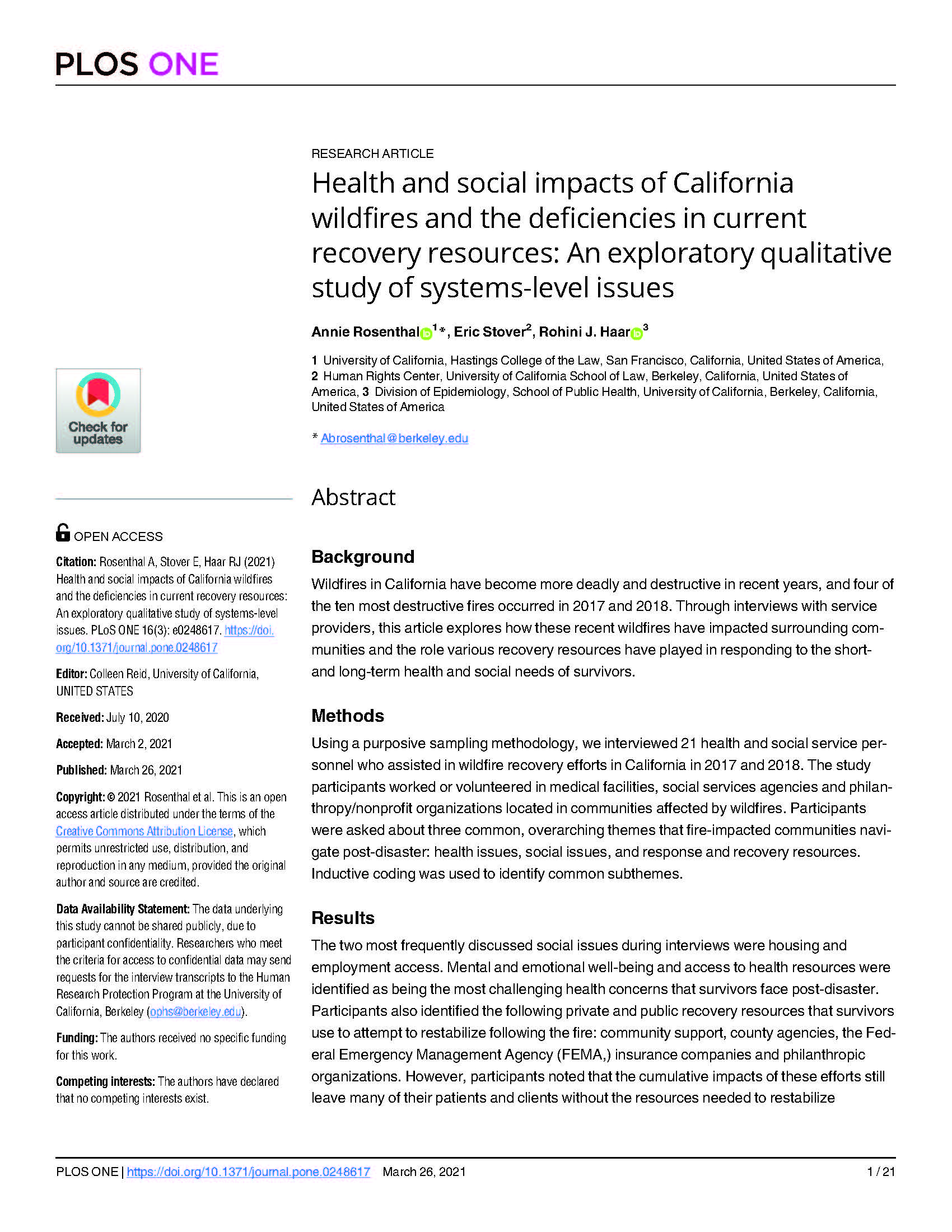Wildfires in California have become more deadly and destructive in recent years, and four of the ten most destructive fires in the state’s history occurred in 2017 and 2018. Using a purposive sampling methodology, we interviewed 21 health and social service personnel who assisted in wildfire recovery efforts in California in 2017 and 2018. The study participants worked or volunteered in medical facilities, social services agencies and philanthropy/nonprofit organizations located in communities affected by wildfires. Participants were asked about three common, overarching themes that fire-impacted communities navigate post-disaster: health issues, social issues, and response and recovery resources. The two most frequently discussed social issues during interviews were housing and employment access. Mental and emotional well-being and access to health resources were identified as being the most challenging health concerns that survivors face post disaster. Participants also identified the following private and public recovery resources that survivors use to attempt to restabilize following the fire: community support, county agencies, the Federal Emergency Management Agency, (FEMA), insurance companies, and philanthropic organizations. However, participants noted that the cumulative impacts of these efforts still leave many of their patients and clients without the resources needed to restabilize emotionally, financially, and physically. Finally, participants spoke about the community-wide, downstream impacts of wildfires, noting that “survivors” are not only those whose health is immediately compromised by the disaster

Partners



